How Safe Is Japan?
The word "Japan" brings to mind many things: high-tech, sushi, anime, samurai, and cherry blossoms. It is one of the most intriguing countries in...
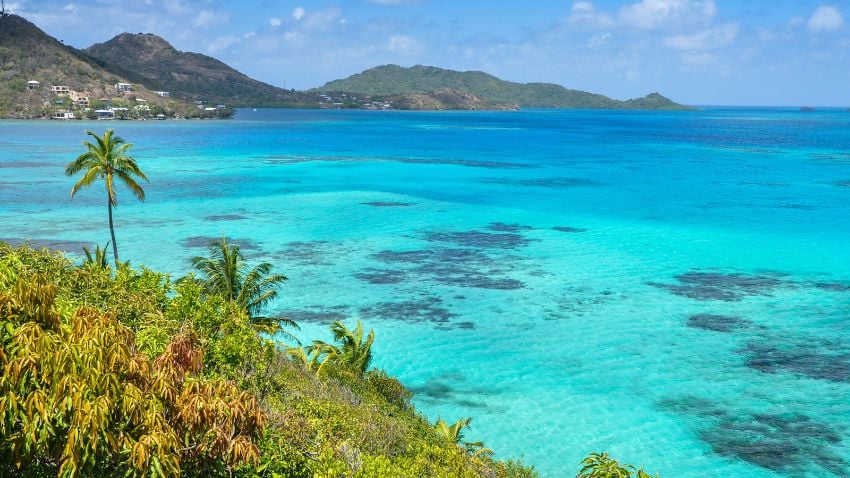
4 min read
Colombia has a tropical climate without significant variations in temperature throughout the year. Cities in mountainous regions like Bogota have an average temperature of 58°F (14°C), which can be pretty chilly. At the other end of the spectrum, you have cities like Cartagena or Barranquilla, located in the northern coastal region where the weather is hot and humid with an average daily mean low temperature of 83°F (28°C) with daily highs of 90°F (32°C). Medellin, nestled below the Andes, has very moderate weather with an average temperature of 70°F (21°C) all year round.
Colombia has a rugged geography, with the Amazon jungle to the east and the Andes mountain range to the south. Most of Colombia’s population is located in the Andean highlands.
In the heart of the country, cities like Bogotá and Medellín pulse with energy and innovation. The urban lifestyle in these areas is characterized by a dynamic mix of commerce, arts, and entertainment. Residents in these cities often find themselves immersed in a thriving cultural scene, with modern architecture standing alongside historic landmarks.
For those seeking a coastal paradise, the Caribbean areas of Colombia, such as Cartagena and Santa Marta, offer a lifestyle painted with sun-soaked beaches and vibrant colours. Coastal communities embody a laid-back atmosphere, inviting residents to embrace a slower pace of life. The influence of Afro-Caribbean culture adds a unique flavour to the lifestyle, reflected in the music, cuisine, and local festivities.
Colombia has the world's second-largest population of Spanish speakers, ahead of Spain and Argentina but before Mexico.
Colombian cuisine is primarily a mix of Spanish, African, and Indigenous Colombian influences. Hearty meals with fresh vegetables, meat, and rice are the norm. For breakfast, one might enjoy a hearty bowl of Caldo de Costilla, beef rib soup with potatoes seasoned with garlic, onion, and cilantro, served with an arepa. Or huevos pericos scrambled eggs with tomatoes and green onion.
For lunch, many restaurants offer menu del dia or “menu of the day,” an inexpensive meal costing just a couple of dollars that includes juice, a thin fillet of some sort of meat, soup, rice, and beans or lentils. Rotisserie chicken is also trendy in Colombia, served with potatoes.
There are also regional favourites, like bendeja paisa, a positively massive dish with beans, chorizo, minced meat, avocado, egg, chicharron, and plantain, not to mention an endless variety of hearty soups and stews with rich flavours and healthy ingredients.
Related article: The Basics Of How To Get A Second Passport Or A Second Residency.
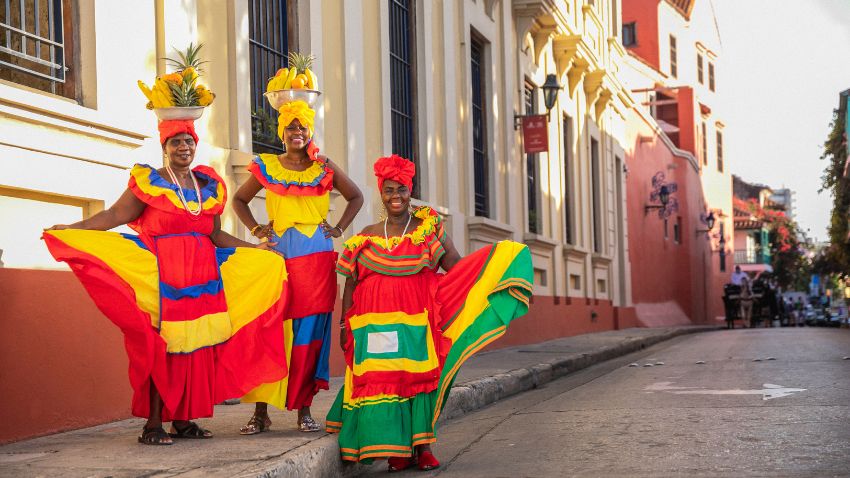
Women in Bright Dress Selling Fruits
Despite historical safety concerns, Colombia has improved dramatically as an expat destination over the last two decades. Still, things are far from perfect. The homicide rate is pretty high, at 22.6 per 100,000. This value has decreased considerably from its peak in 1991 at 84 per 100,000, during the end of Pablo Escobar’s reign. As Colombia’s economy continues to grow and poverty levels decrease, hopefully, the murder rate will also stay on the decline.
This isn’t to say that Colombia is unsafe as a country. Most of the violence doesn’t involve expats or tourists. The ones who do tend to get in trouble are those who get involved with the criminal underworld. Most Colombians are honest, God-fearing individuals just going about their day. If you take a few simple precautions to avoid trouble, like not flashing any cash or expensive jewelry and not wandering around drunk at night, chances are you will be fine. Still, experiencing petty theft and robbery is possible when living in a country with substantial poverty.
Colombia has a top-notch healthcare system. Colombia's private health care options are of the highest quality yet very affordable. Health insurance is cheaper, and you don’t have to worry about long waits as long as you are not using the public system. Prescription medicine also often costs pennies on the dollar.
It is also important to remember that Colombia has a permanent residency by investment program. It is far from an expensive program, and you can easily apply for it on the web.
Related content: Easiest Ways To Get Your Residency in Colombia
Colombia is a highly affordable country, especially as the peso continues to be devalued against the dollar. Like anywhere, it does depend on where you live. Upscale neighbourhoods are going to be more expensive than a working-class barrio. Colombia can accommodate all budgets. Many expenses are a fraction of the cost you might pay in Canada or the USA. Your basic expenses like transportation, accommodations, and food are reasonable.
Fresh fruit, vegetables, and meat are all locally sourced and cheap, although packaged foods and imported goods tend to be more expensive. Domestic help is also quite reasonable if you want it. One of the reasons Colombia is a great retirement destination is that you can really stretch the value of your pension check or retirement savings. You don’t have to worry so much about making ends meet because rent, utilities, and basic necessities are a fraction of what you are used to paying and yet still of decent quality. Inflation actually works in your favour because of the steady devaluation of the peso. Your money buys more each year instead of less.
Related content: Colombia Elects A Socialist And What It Means For Expats
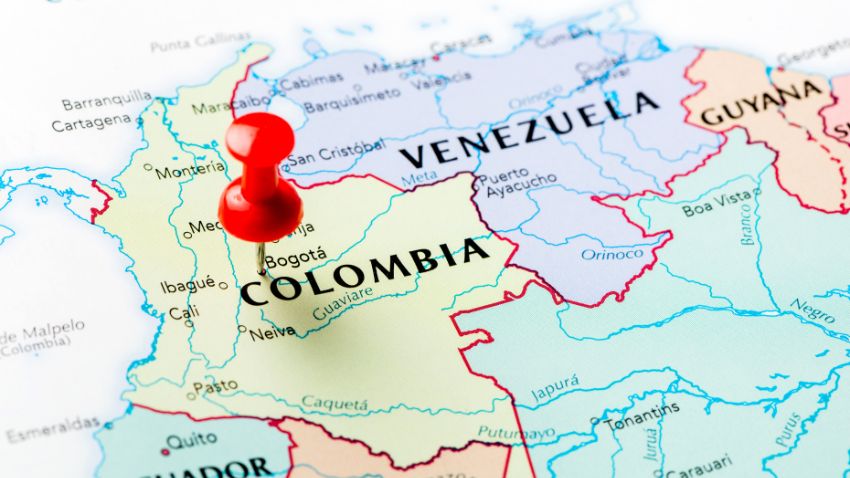
Map of Colombia
The Colombian economy has been growing by 4.3% since 2003, with a banner year in 2021 achieving an increase of 10.3%, rebounding from the 7% contraction in 2020. Mid-year forecasts predict a growth of 6.1% in 2022. Colombia's rapidly modernizing economy has seen substantial growth in tourism, information technology, electronics, and construction.
Lucrative employment opportunities for expats in Colombia are scarce because of the low wages. Many of the highest-paying opportunities for expats are working remotely for a company based in North America or freelancing online. Colombia ranked 67th in terms of ease of doing business by the World Bank, which is above average for the region.
Colombia taxes residents on worldwide income, so if you intend to stay more than 183 days out of the year, you should consider the impact on your tax liability. The Colombian income tax is steeply progressive, with a top marginal rate of 33% on income over $31,000 USD annually.
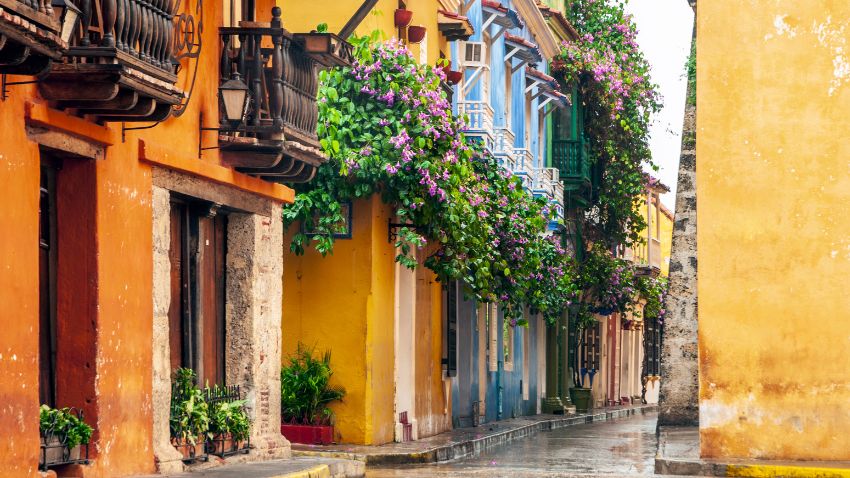
View of Cartagena de Indias, Colombia
Despite the risks, Colombia has a lot to offer expats. From the low cost of living to the generosity and kindness of the Colombian people, life in Colombia has a lot to offer. Colombia is a country of magnificent natural beauty. Living there, you will have an opportunity to experience a completely foreign culture and immerse yourself in a relatively easy-to-learn foreign language. Because English is so uncommon in Colombia, you will have no choice but to pick up basic Spanish at the very least.
The architecture of Colombia reflects its diverse history and cultural influences. From colonial-era structures in cities like Cartagena to contemporary designs in Bogotá, residents are surrounded by a visually captivating environment that tells the story of the nation's past and present.
Colombia's reputation as a retirement destination has been on the rise, attracting retirees from around the world. The combination of a favourable climate, cost of living, and a welcoming community makes it a paradise for those looking to enjoy their golden years in a vibrant and culturally rich setting.
In essence, the lifestyle in Colombia for its residents is a harmonious blend of urban dynamism, coastal tranquillity, strong community bonds, and a commitment to family values. With a diverse array of options, residents in Colombia find themselves embraced by a lifestyle that caters to a multitude of tastes and preferences.
If you want the best intel from the expat world, including profitable offshore opportunities, little-known tax-saving strategies, and hard-won insights on immigration, passports, and Plan-B residencies, all delivered to your inbox every single week, then join our daily correspondence, EMS Pulse®. Currently enjoyed by over 84,000 expats and expat-hopefuls worldwide. Fill in the form below to join our newsletter free:

Written by Mikkel Thorup
Mikkel Thorup is the world’s most sought-after expat consultant. He focuses on helping high-net-worth private clients to legally mitigate tax liabilities, obtain a second residency and citizenship, and assemble a portfolio of foreign investments including international real estate, timber plantations, agricultural land and other hard-money tangible assets. Mikkel is the Founder and CEO at Expat Money®, a private consulting firm started in 2017. He hosts the popular weekly podcast, the Expat Money Show, and wrote the definitive #1-Best Selling book Expat Secrets - How To Pay Zero Taxes, Live Overseas And Make Giant Piles Of Money, and his second book: Expats Guide On Moving To Mexico.
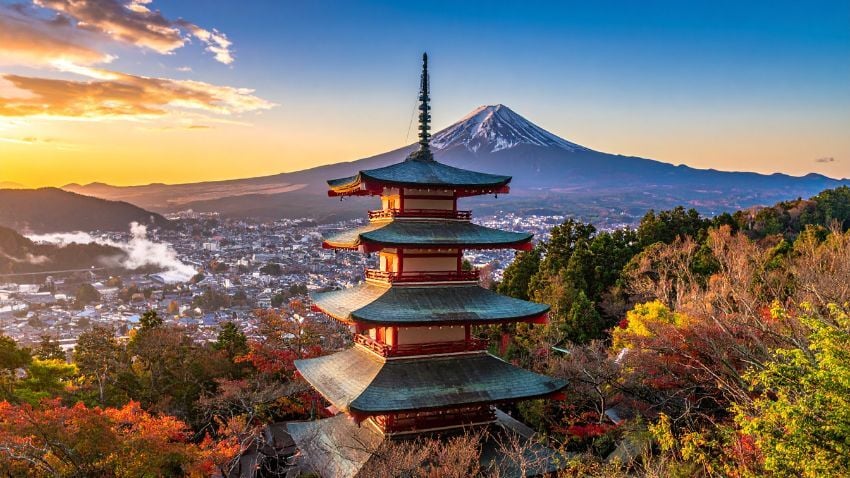
The word "Japan" brings to mind many things: high-tech, sushi, anime, samurai, and cherry blossoms. It is one of the most intriguing countries in...
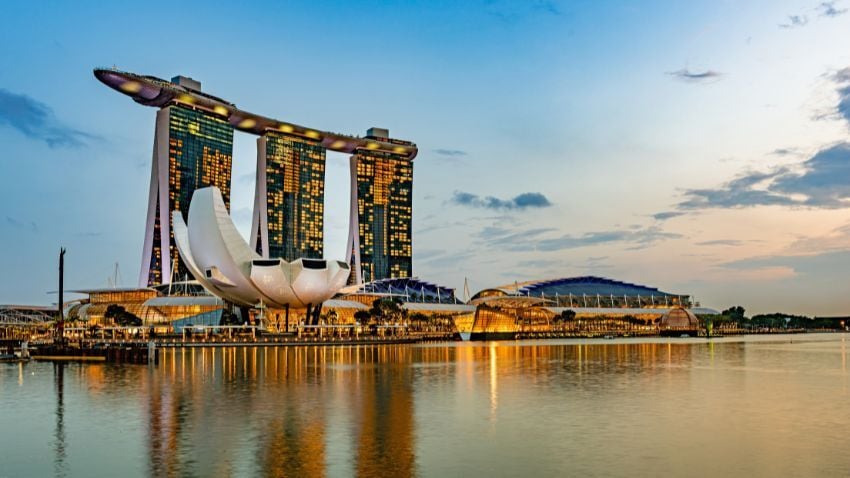
Singapore is often described as a city that works, and it totally deserves its reputation. This small island nation in Southeast Asia has built one...

Panama’s geographic size is modest, but its global relevance is not. The country connects two oceans and two continents, operates on a dollarized...